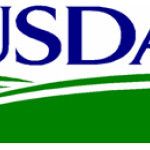- Industri: Government
- Number of terms: 41534
- Number of blossaries: 0
- Company Profile:
Quantitative restrictions are limitations on the quantity or value of a product that may be permitted to enter a country. They are probably the most familiar of the nontariff barriers and include quotas, embargoes, restrictive licensing, and other means of limiting imports. The Uruguay Round Agreement on Agriculture requires the conversion of quantitative restrictions to bound tariffs and tariff rate quotas.
Industry:Agriculture
A restraint on importation of certain animals or plants from areas where pests or contagious diseases are endemic — or isolation of animals or plants suspected of carrying pests or diseases — to prevent the spread of those pests and diseases. States as well as the federal government may impose quarantines or may operate quarantine facilities. See Plant Quarantine Act.
Industry:Agriculture
An AMS pilot program (since 1996) for the fresh-cut produce industry, enabling them to gain official certification of the wholesomeness of their products to improve marketing opportunities. Under this voluntary, fee-for-service program, AMS, using HACCP-based principles, first inspects the company’s facilities to ensure they are properly designed, are consistent with the Food and Drug Administration’s good manufacturing practices, have on-site microbiological testing, follow accepted sanitary operating procedures, and so forth. Ongoing monitoring, including periodic unannounced site visits, sampling, and audits by AMS are intended to ensure that the firm maintains its QTV status, which then authorizes it to use an official AMS mark, the QTV shield, on product labels and in advertisements.
Industry:Agriculture
An option contract to sell a futures contract at an agreed price and time at any time until the expiration of the option. A put option is purchased to protect against a fall in price. The buyer pays a premium to the seller of this option. The buyer has the right to sell the futures contract or enter into a short position in the futures market if the option is exercised. See call option.
Industry:Agriculture
Credits granted to purchasers of timber in the national forests in exchange for the construction of permanent roads specified in the timber sale contract. The amount of the credits is the Forest Service’s estimate of construction costs, and the credits can be used to pay for timber harvested. Occasionally, when stumpage prices are at or near the base rates, some or all of the credits cannot be used, and are then termed ineffective road credits. The authority to grant credits was terminated in the FY1999 appropriations act (P.L. 105-277, October 21, 1998).
Industry:Agriculture
The acquisition of property development rights through voluntary sale by the landowner to a government agency or land trust. The government agency or land trust acquiring development rights typically restricts future uses of the land to farming or open space.
Industry:Agriculture
Annual funding to provide food assistance to needy persons in Puerto Rico in lieu of the Food Stamp Program.
Industry:Agriculture
P.L. 95-514 (October 25, 1978) defines the current grazing fee formula and establishes rangeland monitoring and inventory procedures for Bureau of Land Management and Forest Service rangelands. The National Grasslands are exempt from PRIA.
Industry:Agriculture
A term from the Safe Drinking Water Act (SDWA) which refers to "a system for the provision to the public of piped water for human consumption, if such system has at least fifteen service connections or regularly services at least twenty-five individuals."
Industry:Agriculture
Grain elevators in which bulk storage of grain is provided for the public for a fee. Grain of the same grade but owned by different persons is usually mixed or commingled as opposed to storing it "identity preserved." Some elevators are approved by exchanges as "regular" for delivery on futures contracts.
Industry:Agriculture
